Baltimore-based tech startup seeks trial partners for the BRS-1
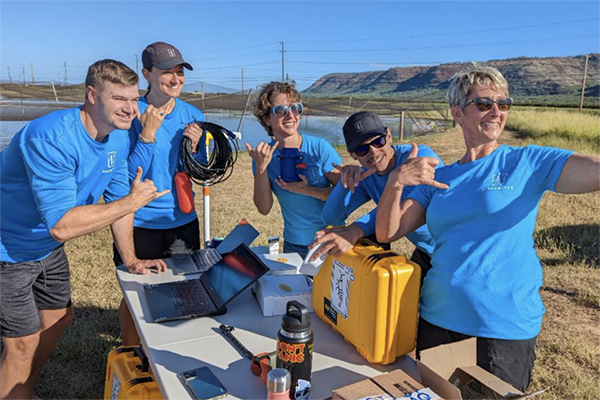
Befitting a buzzy tech startup in the 21st century, U.S. aquaculture technology company Minnowtech on Thursday live-streamed its launch of the BRS-1, its highly anticipated shrimp biomass estimator device.
The BRS-1, the young Baltimore-based company explained, is the first machine of its kind, using sonar to capture and analyze shrimp pond activity data and give farmers a clearer picture of their inventory, with up to 95 percent accuracy. The device counts individual shrimp and extrapolates the information into estimated biomass.
While sonar technology is not itself new, Minnowtech applies machine learning, or artificial intelligence (AI), to interpret the data that the in-pond device gathers, making the devices more effective over time – “the more data we get the better,” said company CEO Suzan Sharestani. The company also has shrimp-specific intelligence that it has developed over time, including ecology and animal behavior.
Because of the turbid waters that shrimp ponds are known for, farmers are thus “blindfolded to their counts,” the company said in a 15-minute introduction video. But with the BRS-1 collecting and Minnowtech’s data scientists analyzing pond data, farmers can adjust feeding and harvest times to minimize waste, dial in feed conversion ratios (FCR) and optimize water quality, among other advantages.
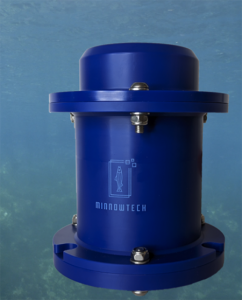
As one Indonesian shrimp farmer explained in an interview there is “no way to exactly know the biomass in your pond,” which is the information that buyers also need to know to coordinate logistics.
Minnowtech, which has been carrying out trials in Hawaii with Kauai Shrimp, is now fielding offers for additional trial partners, who will be able to take advantage of a limited hardware discount and free service for six months. The minimum investment to trial the BRS-1 is $15,000.
The BRS is a compact blue device made of durable materials made to withstand aquaculture pond environments and require little maintenance. Each unit is designed to scan an area of 1 hectare (ha), the typical size of an intensive shrimp pond throughout Southeast Asia and South America. Larger ponds, like 5 ha in size, would require multiple units – each costing $5,000 – that can work in tandem.
The devices must stay in the pond in one place for the readings to be accurate, the company explained. While the device is capable of detecting biomass for shrimp in both lined and earthen ponds, Sharestani and her team explained that its results were best for shrimp at 15 grams and larger, or animals at day 30 of the typical shrimp culture cycle. The BRS-1 estimates biomass using individual size estimates from the farmer.
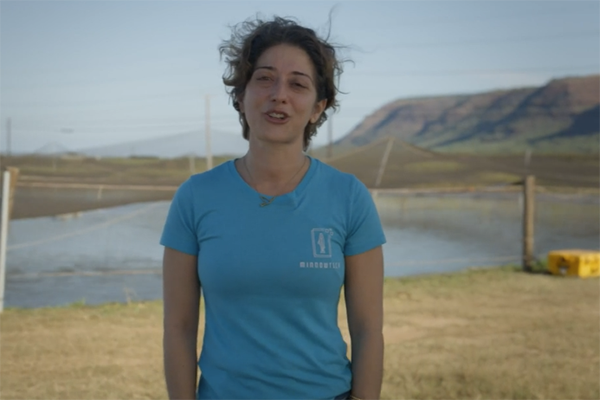
The device works best for intensive shrimp farming operations, with high stocking densities (30 shrimp per square meter or more), the company noted. The sonar technology is highly sensitive but does require that aerating paddlewheels be shut down during scans, which take about 30 minutes each. Nanobubble aeration does not affect the accuracy of the system, and does not require the shrimp to be handled or sent into a flow-through counter, making it a “non-invasive” way to make accurate estimates.
Minnowtech said trial partners must agree to buy five units, but at a 40 percent discount (five devices at $3,000 each) and six months of free service. The company expects the devices to be available for wider purchase next year but can register their interest with them now.
Follow the Advocate on Twitter @GSA_Advocate
Now that you've reached the end of the article ...
… please consider supporting GSA’s mission to advance responsible seafood practices through education, advocacy and third-party assurances. The Advocate aims to document the evolution of responsible seafood practices and share the expansive knowledge of our vast network of contributors.
By becoming a Global Seafood Alliance member, you’re ensuring that all of the pre-competitive work we do through member benefits, resources and events can continue. Individual membership costs just $50 a year.
Not a GSA member? Join us.
Author
-

James Wright
Editorial Manager
Global Seafood Alliance
Portsmouth, NH, USA
Tagged With
Related Posts
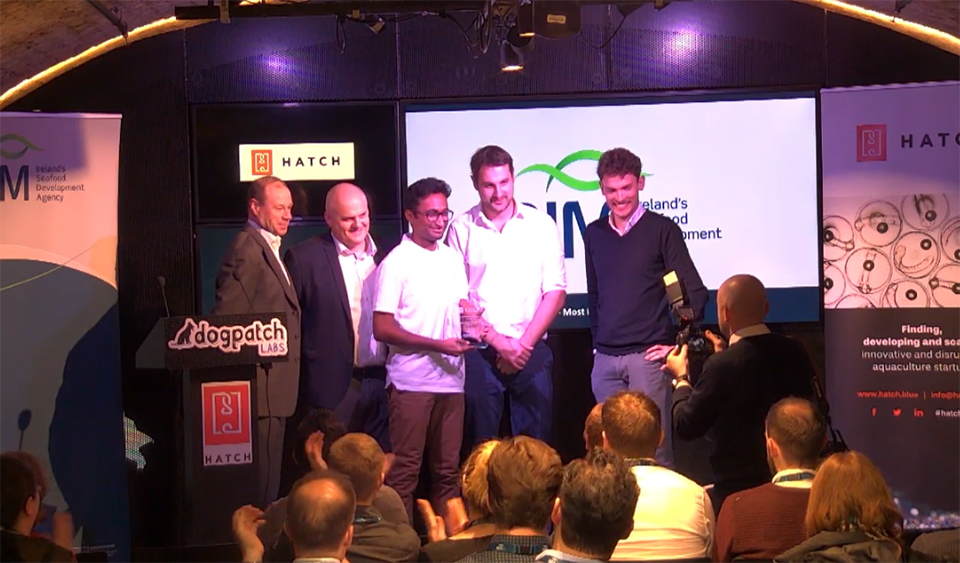
Innovation & Investment
Hatch opens six-pack of winning aquaculture innovators at Demo Day
Demo Day in Dublin, Ireland, last week marked the conclusion of the Hatch aquaculture business accelerator’s second cohort in 2018.
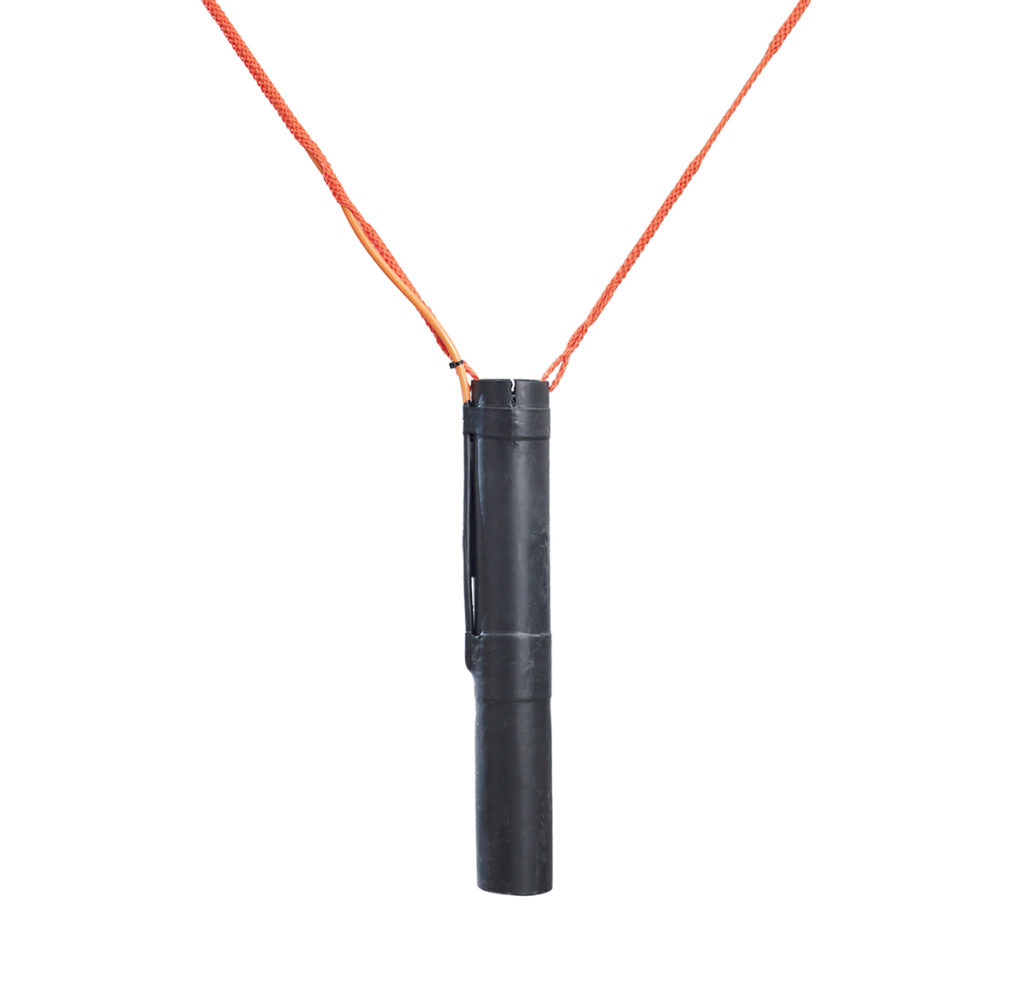
Innovation & Investment
Fish behavior-tracking tech aims to curb aquafeed wastage
Overfeeding is a waste stream for aquaculture. Underwater cameras in pens help, but a company mixing hydroacoustics and machine learning has another idea.
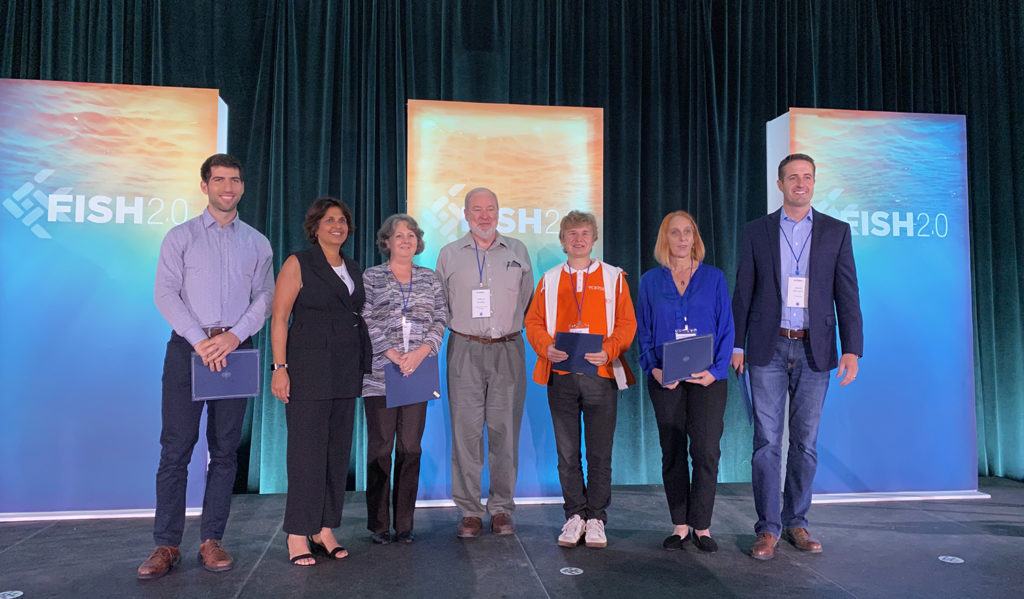
Innovation & Investment
Exit stage right: Fish 2.0 offers final set of winning innovators
Nearly 40 entrepreneurs took the stage to pitch their seafood industry-changing innovations in front of a room full of discriminating investors.
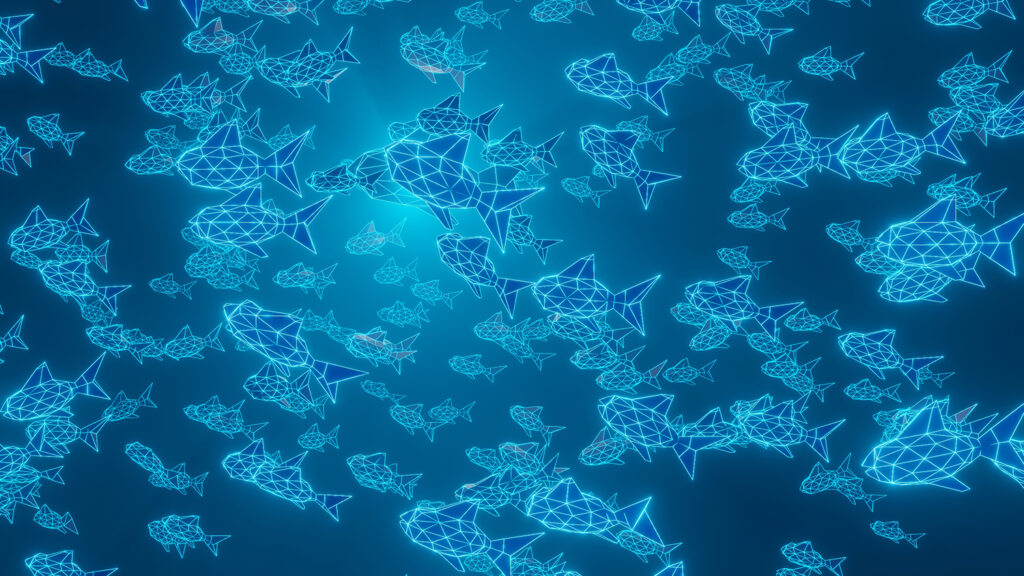
Innovation & Investment
‘AI ticks all the boxes’ and is proving to be a perfect match for aquaculture
Artificial intelligence (AI) is rippling through the aquaculture industry, promising greater efficiencies and insights, as well as investor interest.


